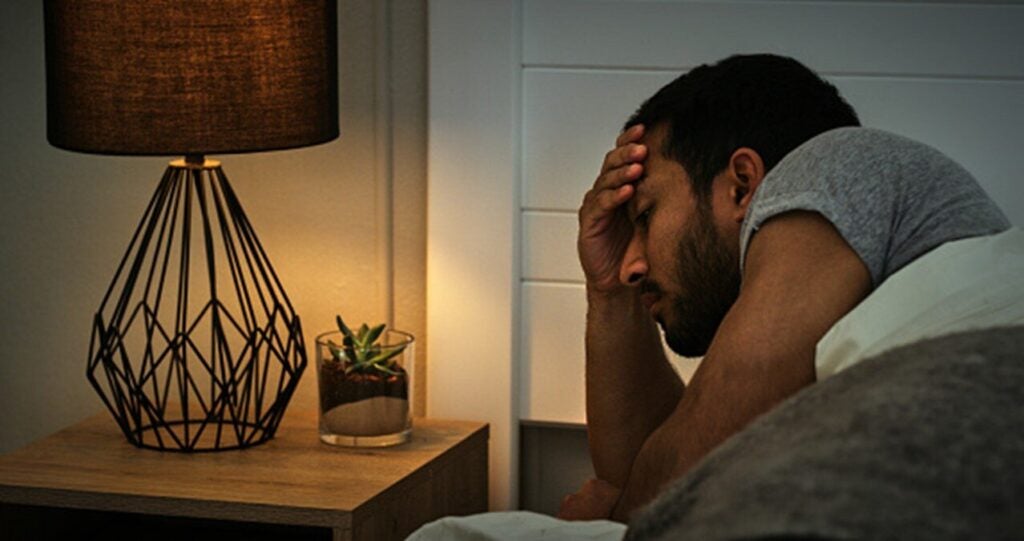Everything About Sleep Apnea
Everything You Need to Know About Sleep Apnea
Sleep apnea is a dangerous breathing disorder that causes you to repeatedly stop breathing during sleep. Without treatment, this condition can affect your personal life and relationships, energy levels, concentration and memory, work performance, and physical and mental health. If you are experiencing sleep apnea symptoms, it’s best to visit a professional for testing and a formal diagnosis. You can then explore your treatment options and make lifestyle changes that improve your sleep patterns and overall health. Here is your guide to everything you need to know about the different types of sleep apnea.

What Are the Different Types of Sleep Apnea?
Determining which type of sleep apnea you have will inform your treatment options and how you manage your condition. The three types are:
- Obstructive Sleep Apnea – This type of sleep apnea occurs when the muscles in your throat relax too much while you’re sleeping. This causes the surrounding tissues to impede on your windpipe, blocking air movement.
- Central Sleep Apnea – If you have central sleep apnea, your brain isn’t sending the proper signals to keep your breathing muscles operating while you sleep.
- Mixed or Complex Sleep Apnea – This is a combination of both obstructive and central sleep apnea.
What Are the Risk Factors & Causes of Sleep Apnea?
Sleep apnea is caused by either an obstruction of your windpipe while you sleep or a disruption of the communication between your brain and central nervous system, resulting in poor control of your breathing muscles while you sleep. Certain risk factors may make it more likely that you develop the condition, including:
- A family history of sleep apnea
- Large tonsils or adenoids
- Obesity
- Neurological conditions
- Certain medications
- Medical conditions that affect your throat or airway
What Are the Most Common Sleep Apnea Symptoms?
Symptoms of sleep apnea can affect every aspect of your life. The most common symptoms are:
- Disruption of Sleep – You may snore loudly, wake up repeatedly throughout the night, wake up choking or gasping for air, or experience changes in breathing patterns while you sleep, such as shallow breathing or fast breathing.
- Problems With or Changes in Your Physical Health – You may develop problems with your physical health, such as intense fatigue, frequent headaches, especially in the morning, restlessness, high blood pressure, heart problems or arrhythmias, weight gain, and night sweats.
- Mood Swings or Changes in Your Mental Health – You may also develop mood swings or rapid changes in mood or personality, as well as mental health problems like irritability, depression, or anxiety.
- Problems With Work or Relationships – You may develop problems that affect your ability to work or maintain a relationship, such as intense fatigue, falling asleep during the day, memory and concentration problems, mental health issues, mood swings, and sexual dysfunction.
Impact of Sleep Apnea on Health
Without treatment, sleep apnea can affect your physical and mental health and put a strain on your relationships. Untreated moderate sleep apnea or severe sleep apnea can increase your risk of certain heart conditions and health problems:
- Cardiovascular Health – You may have a greater risk of heart arrhythmias, heart damage, heart failure, heart attack, and stroke.
- Mental and Emotional Well-Being – You may develop anxiety, depression, and irritability and exhibit personality changes and mood swings. You may have problems at work or with your relationships. You may also suffer from restlessness, fatigue, weight gain, and sexual dysfunction.
- Long-Term Risks – You are at a greater risk of long-term health conditions like high blood pressure, cardiac problems, chronic stress, and obesity.
Sleep Apnea Treatment Options
Dr. Donahue and our team will determine which type of sleep apnea you have and its severity to develop a treatment plan. Your treatment options may include:
- Lifestyle Changes – We will recommend changes to your diet, regular exercise, weight loss, and changes to your sleep habits. We may suggest that you quit using tobacco products or drinking alcohol. We may also recommend changes in your sleep position, mattress and pillows, and sleep environment.
- CPAP Therapy (Continuous Positive Airway Pressure) – CPAP therapy uses pressurized air to keep your airways open while you sleep. It is a treatment option for obstructive sleep apnea.
- Dental Devices – A dental sleep apnea device is an oral appliance that can keep your airway open while you sleep.
- Surgery – You may need surgery on your nose, mouth, or throat to prevent airway blockages while you sleep. Jaw surgery can change the alignment and position of your jaw so that soft tissues won’t impede your airway. Nasal surgery can straighten the soft tissues in your nose so air can pass through more easily. Inspire therapy is an alternative to a CPAP, and it is a small implant for sleep apnea that is surgically implanted in the skin of your chest.
- Alternative Therapies – Alternative therapies for sleep apnea use functional medicine or regenerative medicine therapies to reduce or manage sleep apnea. These therapies may include chiropractic care, PRP therapy, acupuncture, massage therapy, myofunctional therapy, hypoglossal nerve stimulation, and positional therapy.
Call Donahue Dental to Explore Sleep Apnea Treatment Options
At Donahue Dental, Dr. Donahue and our team can run tests to determine if you have sleep apnea. We will design a personalized treatment plan based on the type and severity of your sleep apnea, age, overall health, symptoms, and lifestyle. Call us now or contact us online to schedule a consultation to explore your sleep apnea treatment options.
